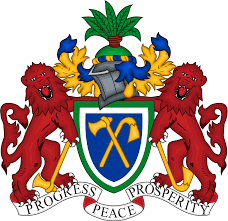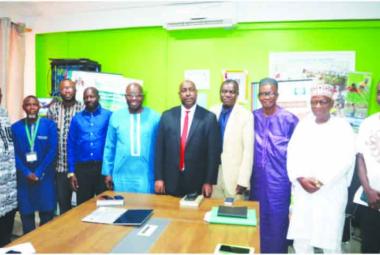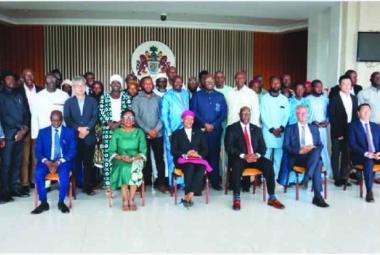The regional manager of Gambia Customs in the Upper River Region Buba Ceesay has told this paper that Gambian citizens venturing in business within the ECOWAS region are really suffering from payment of high taxes. Ceesay said traders do pay high amount of levies at the many security check points within the ECOWAS region. This he said is usually done without receipts given. The regional customs manager was speaking in an exclusive interview with this paper recently at his office at Basse Mansajang in the Upper River Region.
He revealed that his office receives such complaints on daily basis from Gambian business men and women. He reported that aside the payment of high taxes at those foreign check points, some traders do get their goods; especially cloths confiscated by customs authorities of those countries.
Ceesay therefore called on Gambian representatives at the ECOWAS Parliament to raise this issue at the sub-regional parliament. “We also received 3 to 4 vehicles from Mali and other parts of the region who bitterly complained of the difficulties they faced before they reached out to our check points”.
He seized the opportunity to advise commercial drivers from other ECOWAS countries to always show their driving documents whenever they are entering the respective ECOWAS states. This he said allows customs officers to identify the vehicles; their origin and destinations to avoid problem. “This because we do record movements of both vehicles and peoples passing through the boarders into the Gambia,” he explained.
Mr Ceesay assured that The Gambia Customs respects the free movements of goods, people and services. However, he emphasized that they must screen anybody who comes with something to the boarder. He also advised drivers to be very mindful when loading their vehicles; that they should know what they are carrying to the border.
The sub-regional body ECOWAS likes to pride itself with the aspiration of enhancing the free movements of people, goods and services across its 15 member countries, but many are of the view that this is a far-fetched dream, as there have been complaints about the myriad of hitches cross-border traders and businesses encounter amid many high levies and duties.






